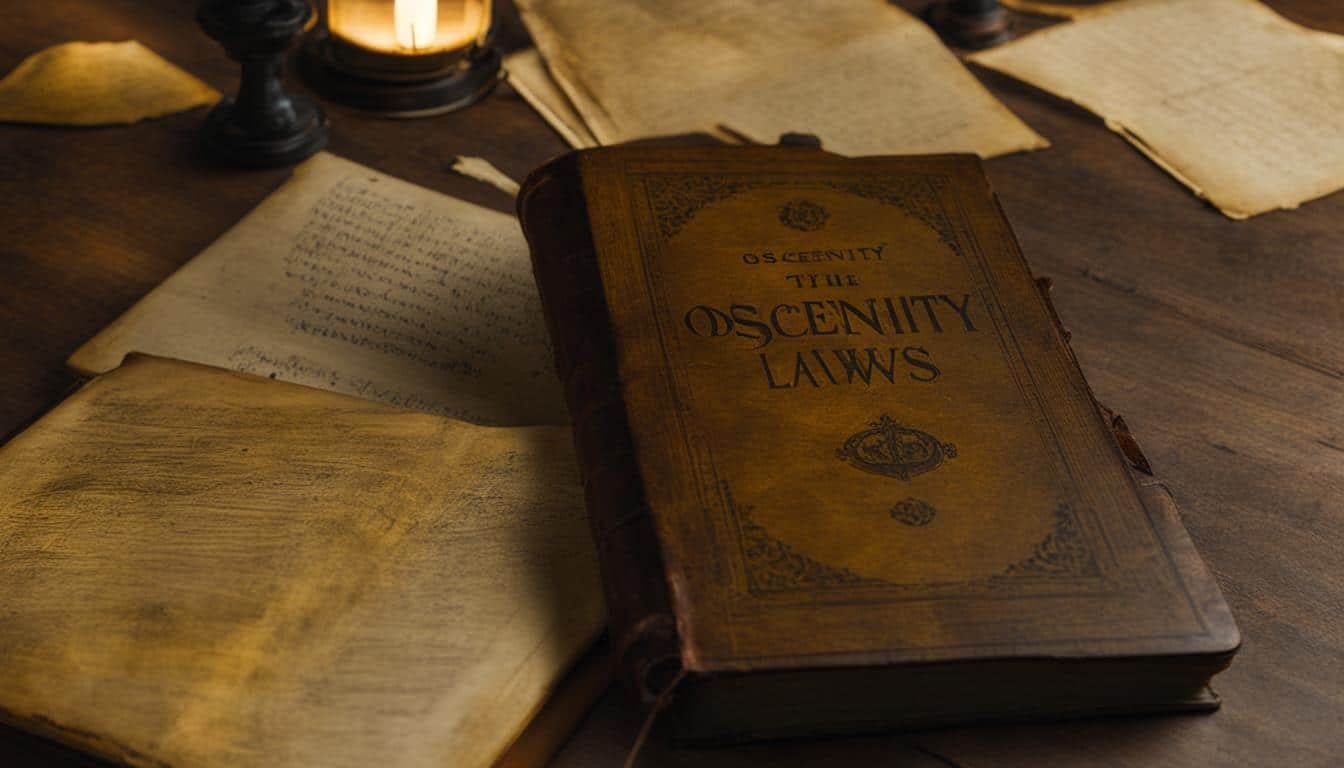Are you confused about the legal intricacies surrounding obscenity laws? Understanding the legal definition of obscenity and its implications can help you navigate this complex area. In this article, we will provide you with four key tips to help you comprehend legal obscenity definitions.
Key Takeaways
- Obscenity is not protected by the First Amendment and may be restricted.
- All fifty states have individual laws controlling obscene materials.
- The current legal standard for obscenity is the Miller test.
- Distribution of obscene material to minors carries harsher penalties.
- CEOS and federal agencies play a crucial role in enforcing obscenity laws.
The Criminalization and Prohibition of Obscenity
In the United States, the criminalization of obscenity is an important aspect of the legal system. Obscenity, which is not protected under First Amendment rights, is considered a criminal offense. This means that the distribution, sale, production, or business of selling obscene matter is prohibited under federal law. Additionally, possession with intent to sell or distribute obscenity is also illegal.
To determine if material is obscene, U.S. courts use the Miller test. This test consists of three criteria: whether the average person would find the material appealing to prurient interest, whether it depicts or describes sexual conduct in a patently offensive way, and whether it lacks serious value. Violations of federal obscenity laws can result in fines and imprisonment.
It’s important to note that the penalties for obscenity offenses involving minors are even stricter than those involving adults. Distributing obscene material to minors carries harsher punishments, reflecting the commitment to protect children from explicit and harmful content. Offenders may also be required to register as sex offenders, further underscoring the severity of these offenses.
Table: Penalties for Obscenity Offenses
| Offense | Potential Penalties |
|---|---|
| Distribution of Obscene Material to Adults | Fines and imprisonment |
| Distribution of Obscene Material to Minors | Harsher fines and imprisonment, potential sex offender registration |
| Possession with Intent to Sell or Distribute Obscenity | Fines and imprisonment |
It is crucial to enforce federal obscenity laws to protect both society and minors from explicit content. These laws serve as a deterrent and emphasize the importance of maintaining community standards, as highlighted by the Miller test. By criminalizing obscenity, the legal system aims to ensure a safer and more respectful environment for all.
The Role of CEOS in Enforcing Obscenity Laws
When it comes to enforcing obscenity laws in the United States, the Child Exploitation and Obscenity Section (CEOS) plays a crucial role. CEOS is a dedicated federal agency that works tirelessly to ensure the proper enforcement of federal obscenity laws. This agency collaborates with other entities, such as the High Technology Investigative Unit (HTIU), the FBI, and local U.S. Attorney’s Offices, to effectively combat the distribution of obscene materials.
CEOS operates with a national-level focus, coordinating investigations and initiatives to tackle the issue of obscenity. It recognizes the significance of community standards as emphasized by the Miller test, which determines whether material is considered obscene. CEOS understands that defining obscenity based on local community standards requires the commitment and support of local U.S. Attorney’s Offices.
By working in collaboration with various federal entities and local authorities, CEOS strives to uphold obscenity laws, protect individuals from explicit and harmful materials, and ensure a safer society for all.
Obscenity Laws and Minors: Protection and Penalties
When it comes to protecting minors from explicit and harmful material, federal obscenity laws play a crucial role. These laws specifically target the distribution of obscene matter to minors, ensuring their safety and well-being.
Under federal law, the distribution of obscene material to minors is strictly prohibited. Additionally, the use of misleading website domain names to deceive minors is also considered illegal. These measures are in place to safeguard children from exposure to explicit content.
It’s important to note that obscenity laws involving minors carry much harsher penalties than offenses involving only adults. Offenders may be required to register as sex offenders, resulting in long-term consequences for their actions.
Federal laws not only aim to penalize those who distribute obscenity to minors but also protect children from explicit and harmful material on the internet. These laws serve as a vital tool in combating the proliferation of inappropriate content that can harm young minds.
Source Links
- https://www.justice.gov/criminal/criminal-ceos/citizens-guide-us-federal-law-obscenity
- https://www.law.cornell.edu/wex/obscenity
- https://www.justice.gov/criminal-ceos/obscenity







